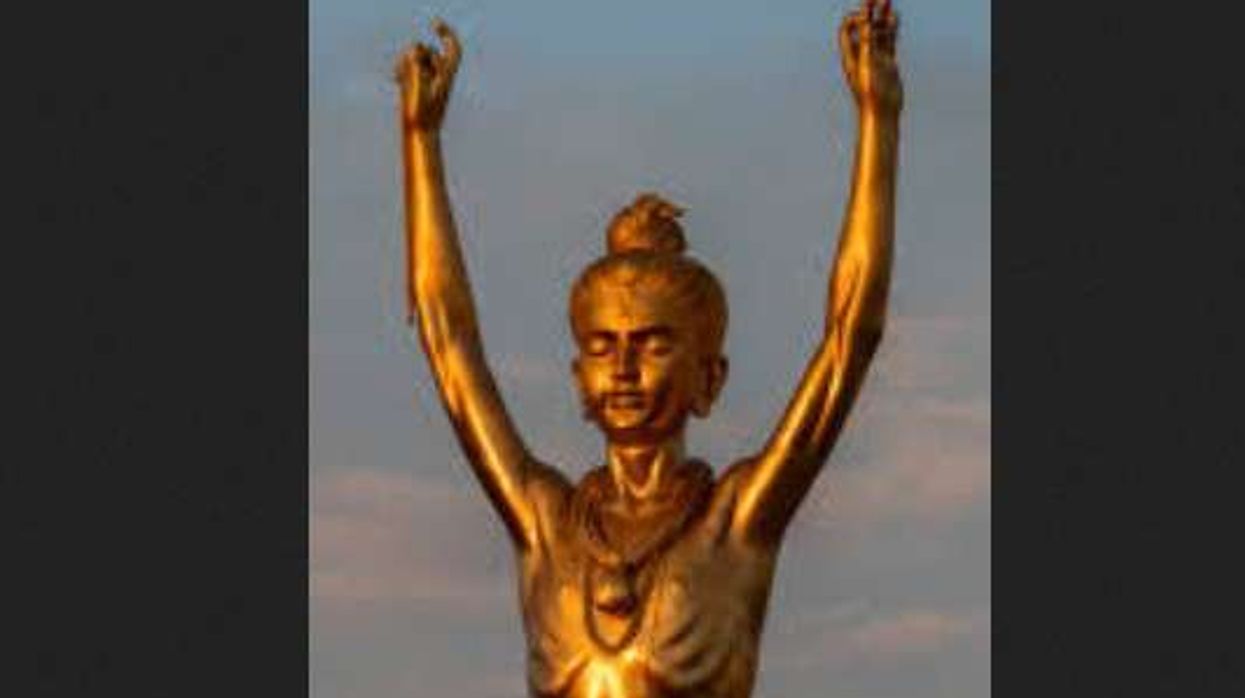By S Neeraj Krishna
HISTORIAN Willian Dalrymple has urged the UK to acknowledge the “really terrible things that happened in our past” and set up a “museum of colonialism”.
He said the monuments of “war criminals” from Britain’s colonial past should be taken down and displayed at a public venue, like the National Museum of African American History and Culture in the US.
Dalrymple emphasised that the British education system had, for long, been hiding gory chapters of imperial history.
“At the moment children in schools go from Henry VIII to Wilberforce and the impression they get is that the British Empire was always about liberating slaves and always about anti-racism,” he said during the the recent Jaipur Lit Fest's concluding debate titled ‘The Age of Iconoclasm’.
“The things the British did in India and elsewhere are simply not taught in the syllabus and that is a problem. When the British go out into the world, they don’t know what Indians know about the Raj or what the Irish know about the potato famine, they don’t know what the Australians know about the mass extinction of the Indigenous Tasmanians.…”
Referring to the pulling down of slave trader Edward Colston’s statue in Bristol, Dalrymple said he “certainly wouldn’t want to see most of the nation’s statues torn down”, but insisted that imperial heroes who were modern-day villains deserved to be in a museum.
“When we go to Germany, we do not expect to see Hitler or any of the Nazi war criminals or SS officers standing on plinths, and in the same way we have to weed out war criminals from our country,” Dalrymple pointed out.
“It’s not a matter of being woke or a matter of being fashionable or trendy but it’s being realistic about some of the really terrible things that happened in our past and teaching them to our children. If we put them in a museum of colonialism, this is an opportunity to teach, because we can set up a museum, which will do at the moment what the curriculum fails to do.”
Dalrymple, who’s considered to be an authority on the Empire’s rein in India, highlighted the monuments of “war criminals” Brigadier General John Nicholson, Field Marshal Sir Colin Campbell and Major General Sir Henry Havelock.
In his book The Last Mughal, the Scottish historian described Nicholson – whose statues stand in Northern Ireland – as an “imperial psychopath” who had a “merciless capacity for extreme aggression and brutality”.
During the 1857 Indian uprising, Nicholson had said: “I would inflict the most excruciating tortures on them with a perfectly easy conscience.”
Dalrymple added: “Sir Colin Campbell’s statue stands in Clydeside [in Glasgow], but he is someone who sewed Sepoys [British-employed Indian soldiers] into pig skins and made them lick up the blood in the Bibighar before blowing them from the mouths of cannon.”
Havelock, whose statute stands at Trafalgar Square, “did the same” along with Cambell, “murdered around 100,000 non-combatants in Lucknow and Cawnpore”, he said.
“These are people,” Dalrymple stressed, “we would describe as war criminals anywhere else.”
The Indophile writer, who is mostly based in Delhi, said the UK should “face up as the Germans have done to the sins of the past and apologise for the things that need apologising for and then move on”.
British historian Edward Chancellor, however, argued in the debate that the “current statue-bashing is part of the woke movement with its cancel culture, denunciations, forced confessions, censorship, intolerance and profound anti-intellectualism”.
“Give an inch to these people and no statue will be left standing,” he said. “It is an assault on the values of the Enlightenment and espouses a cultural nihilism.”
Indian journalist Swapan Dasgupta, too, opposed pulling down of statues, while underscoring the importance of viewing history with a bipartisan lens.
“History was never going to be written on the basis of how one statue in Bristol looked,” he said. “This is not an attempt to rewrite history or make history a little more even-handed. What it really amounts to is airbrushing history, throwing out a lot of unconformable things, and believing in sanitising the past to make it palpable to contemporary morality.”
On being asked whether the controversial monuments should be shifted to a “museum of colonialism”, 53 per cent of the virtual debate’s audience agreed.











